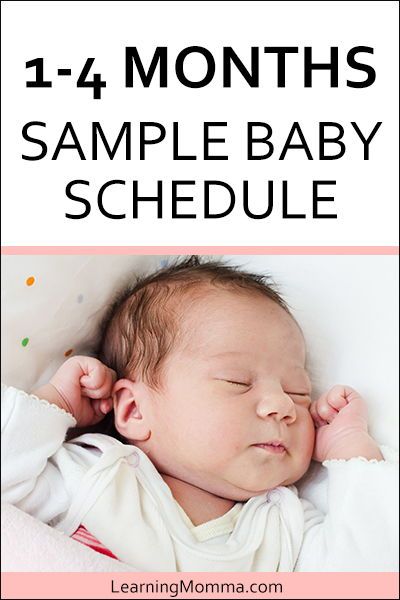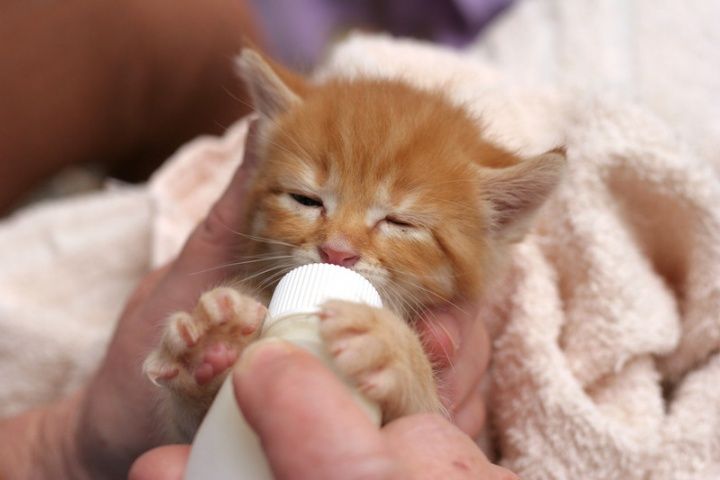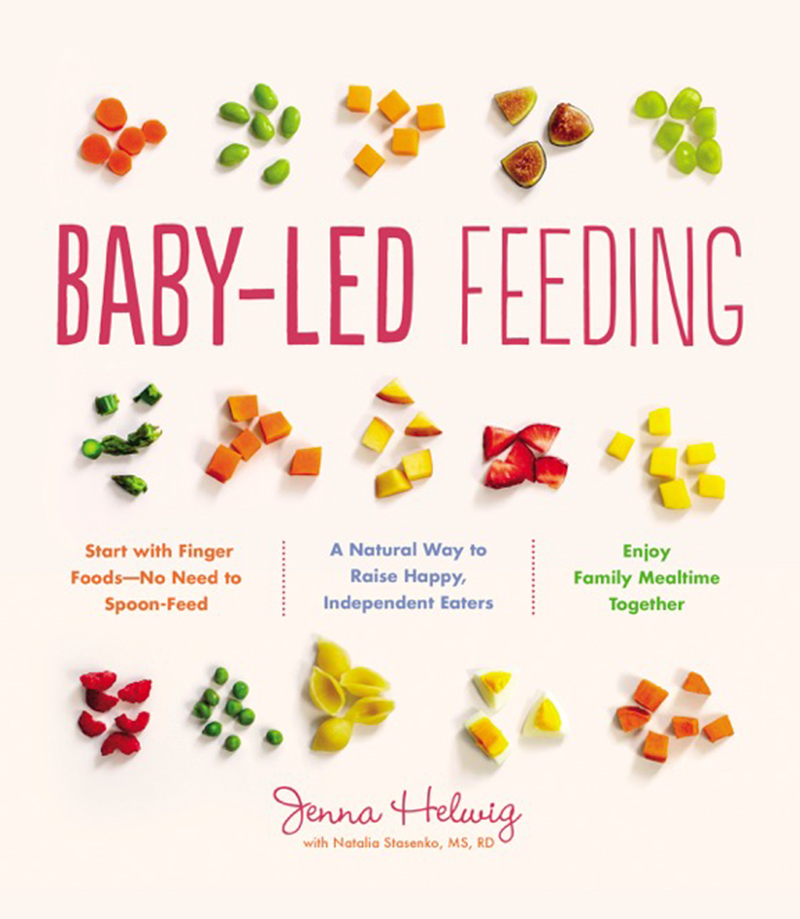Newborn baby not waking up for feeding
What is normal and what to do
Most newborns spend more time asleep than they do awake, but their sleep may happen in small chunks or on an irregular schedule.
Managing a newborn’s sleep is one of the most challenging tasks associated with looking after a newborn.
Newly born babies are not accustomed to schedules or the rhythms of a typical day and night. For this reason, they might not sleep at what many people consider to be the appropriate times.
Some people may worry that their baby is sleeping too little or too much. Anyone who is concerned about a baby’s sleep habits could try keeping a sleep log. They might find that the newborn is sleeping much less, or much more, than they thought.
This article discusses how much and how often a newborn baby should sleep.
Most newborns sleep for around 8–9 hours during the day and 8 hours at night. Most also wake up at least every 3 hours to feed.
However, this timing varies widely. Some newborns may only sleep for 11 hours per day, while others may sleep for up to 19 hours per day. Also, newborns may sleep more or less than usual when they are sick or when they experience a disruption to their regular routine.
Most newborns also do not sleep in one stretch. They usually sleep for only about 1–2 hours at a time, though some may sleep a little more or less than this. In the first couple of weeks, it is normal for a newborn to wake up to feed and then go right back to sleep.
As newborns grow into infants, they begin to develop a schedule. They eventually start sleeping longer at night, though they may still wake several times to feed.
By the age of 6 months, 90% of babies sleep through the night. Even then, though, there is a significant variation from baby to baby.
A baby occasionally sleeping for longer than usual is not a cause for concern unless there are other symptoms.
In general, it is uncommon for a newborn to consistently sleep through feedings or to sleep for longer than 19 hours per day unless they are ill or are having feeding difficulties.
Some of the most common reasons that healthy babies sleep for longer than usual include the following:
- They may experience a growth spurt or developmental leap.
- They may have a minor illness, such as a cold.
- They may have a serious infection. This is rare, but it can happen. A newborn might not have a fever or other symptoms of illness like an older baby might.
- In very rare instances, a baby may have another medical condition that causes them to sleep too much. Breathing and heart disorders may affect sleep, and premature babies often have different sleep patterns from full-term infants.
- Some babies sleep too much because they have jaundice. A newborn who has jaundice will have a yellow color to their skin and a yellow cast to the whites of their eyes. Other symptoms of more severe jaundice include being lethargic, having difficulty eating, and being fussy or irritable.
- Sometimes, babies may sleep too much because they are not getting enough to eat.
 They may get dehydrated, lose too much weight, and even experience a failure to thrive.
They may get dehydrated, lose too much weight, and even experience a failure to thrive.
The latter could happen if there is a problem with nursing because a breastfeeding, or chestfeeding, person cannot measure how much their baby is eating compared with a person who is formula feeding. They rely on external signs, such as the baby’s weight gain and diaper output.
However, in the early stages — especially for first-time parents — the signs of a potential problem may be easy to miss.
The good news is that early intervention from a pediatrician and nursing consultant can ensure that a baby is getting enough food and reassure people that breastfeeding, or chestfeeding, is possible.
A baby, whether breastfed, chestfed, or formula fed, may not be getting enough to eat if the following apply:
- They seem very lethargic and unresponsive.
- They are 14 days old and have not retained their birth weight.
- They are more than 6 weeks old and are consistently gaining less than 4–6 ounces per week.
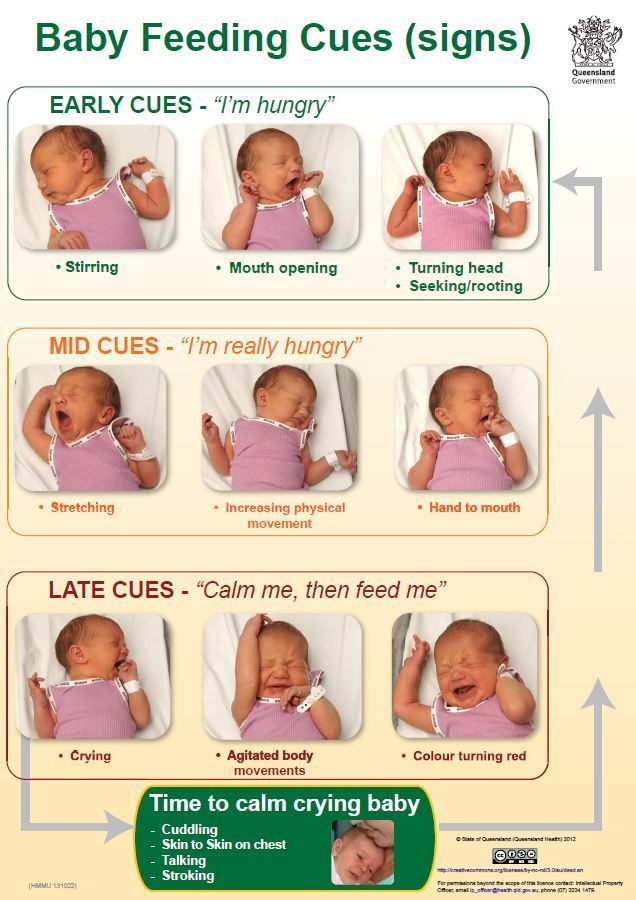
- They are producing fewer than four very wet diapers per day.
- They do not seem calmer after eating.
Newborns often cluster-feed, which means that they may eat several times over the course of 1–2 hours or nurse for an extended period. Most newborns should eat every 2–3 hours (or eight to 12 times every 24 hours) or more if a pediatrician recommends so or if the baby is not gaining enough weight.
Feeding a newborn whenever they show hunger cues — such as rooting, sucking, or sticking out their tongue — is the best way to ensure that they get enough food.
It is not necessary to wake most older newborns up to eat. However, those younger than 1 month old or so may not wake up when they feel hungry. Babies younger than 4 weeks old should not go longer than 4–5 hours without food.
To wake a baby up to eat, try brushing the side of their cheek. This can trigger the rooting reflex. Most babies dislike having their feet stroked. So, if stroking the cheek does not work, try gently wiggling the baby’s toes or gently stroking the bottoms of their feet.
Food needs vary from baby to baby. Parents and caregivers should consult a pediatrician or nursing expert, who can offer individual advice based on the needs and development of the baby.
Usually, a newborn who appears to be sleeping too much is just sleeping on an irregular schedule.
Nevertheless, health issues such as respiratory infections that are minor annoyances in older babies can be much more dangerous in newborns. So, anyone who is concerned about a baby’s sleeping schedule should consult a pediatrician.
Some strategies to try before calling the doctor include:
- feeding the baby every time they show hunger cues
- offering the baby the breast, the chest, or a bottle every 1–2 hours to ensure adequate food intake
- making sure that the baby is not too cold or too hot
- keeping a log of the baby’s sleep schedule for 1–2 days
When in doubt, contact a doctor. Only a doctor can accurately determine the reason that a newborn is sleeping too much. In many cases, a pediatrician may be able to assess the problem over the phone.
In many cases, a pediatrician may be able to assess the problem over the phone.
Excess sleep in a newborn is not typically an emergency unless they also show signs of respiratory problems. Call a doctor or go to the emergency room if the following apply:
- The baby is gasping for air or wheezing.
- The baby’s breathing is very loud.
- The baby’s nostrils flare when they breathe.
- The skin around the baby’s ribs sinks in when they breathe.
- The baby has a fever.
- The baby may have inhaled, touched, or eaten something toxic.
Finding the rhythm of a newborn’s sleeping pattern is a constant challenge. Most babies settle into a comfortable routine sooner or later. Parents and caregivers should eventually understand what is and is not normal for their baby.
It is common to worry about a baby’s sleep. This concern often helps people detect problems early and encourages them to seek expert advice when necessary.
Anyone who is worried that a baby may be sleeping too much should talk with a pediatrician.
What is normal and what to do
Most newborns spend more time asleep than they do awake, but their sleep may happen in small chunks or on an irregular schedule.
Managing a newborn’s sleep is one of the most challenging tasks associated with looking after a newborn.
Newly born babies are not accustomed to schedules or the rhythms of a typical day and night. For this reason, they might not sleep at what many people consider to be the appropriate times.
Some people may worry that their baby is sleeping too little or too much. Anyone who is concerned about a baby’s sleep habits could try keeping a sleep log. They might find that the newborn is sleeping much less, or much more, than they thought.
This article discusses how much and how often a newborn baby should sleep.
Most newborns sleep for around 8–9 hours during the day and 8 hours at night. Most also wake up at least every 3 hours to feed.
However, this timing varies widely. Some newborns may only sleep for 11 hours per day, while others may sleep for up to 19 hours per day. Also, newborns may sleep more or less than usual when they are sick or when they experience a disruption to their regular routine.
Also, newborns may sleep more or less than usual when they are sick or when they experience a disruption to their regular routine.
Most newborns also do not sleep in one stretch. They usually sleep for only about 1–2 hours at a time, though some may sleep a little more or less than this. In the first couple of weeks, it is normal for a newborn to wake up to feed and then go right back to sleep.
As newborns grow into infants, they begin to develop a schedule. They eventually start sleeping longer at night, though they may still wake several times to feed.
By the age of 6 months, 90% of babies sleep through the night. Even then, though, there is a significant variation from baby to baby.
A baby occasionally sleeping for longer than usual is not a cause for concern unless there are other symptoms.
In general, it is uncommon for a newborn to consistently sleep through feedings or to sleep for longer than 19 hours per day unless they are ill or are having feeding difficulties.
Some of the most common reasons that healthy babies sleep for longer than usual include the following:
- They may experience a growth spurt or developmental leap.
- They may have a minor illness, such as a cold.
- They may have a serious infection. This is rare, but it can happen. A newborn might not have a fever or other symptoms of illness like an older baby might.
- In very rare instances, a baby may have another medical condition that causes them to sleep too much. Breathing and heart disorders may affect sleep, and premature babies often have different sleep patterns from full-term infants.
- Some babies sleep too much because they have jaundice. A newborn who has jaundice will have a yellow color to their skin and a yellow cast to the whites of their eyes. Other symptoms of more severe jaundice include being lethargic, having difficulty eating, and being fussy or irritable.
- Sometimes, babies may sleep too much because they are not getting enough to eat.
 They may get dehydrated, lose too much weight, and even experience a failure to thrive.
They may get dehydrated, lose too much weight, and even experience a failure to thrive.
The latter could happen if there is a problem with nursing because a breastfeeding, or chestfeeding, person cannot measure how much their baby is eating compared with a person who is formula feeding. They rely on external signs, such as the baby’s weight gain and diaper output.
However, in the early stages — especially for first-time parents — the signs of a potential problem may be easy to miss.
The good news is that early intervention from a pediatrician and nursing consultant can ensure that a baby is getting enough food and reassure people that breastfeeding, or chestfeeding, is possible.
A baby, whether breastfed, chestfed, or formula fed, may not be getting enough to eat if the following apply:
- They seem very lethargic and unresponsive.
- They are 14 days old and have not retained their birth weight.
- They are more than 6 weeks old and are consistently gaining less than 4–6 ounces per week.
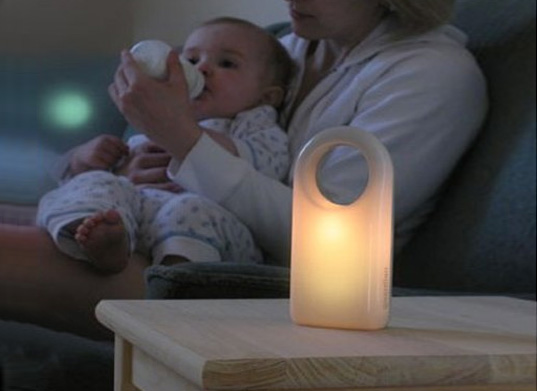
- They are producing fewer than four very wet diapers per day.
- They do not seem calmer after eating.
Newborns often cluster-feed, which means that they may eat several times over the course of 1–2 hours or nurse for an extended period. Most newborns should eat every 2–3 hours (or eight to 12 times every 24 hours) or more if a pediatrician recommends so or if the baby is not gaining enough weight.
Feeding a newborn whenever they show hunger cues — such as rooting, sucking, or sticking out their tongue — is the best way to ensure that they get enough food.
It is not necessary to wake most older newborns up to eat. However, those younger than 1 month old or so may not wake up when they feel hungry. Babies younger than 4 weeks old should not go longer than 4–5 hours without food.
To wake a baby up to eat, try brushing the side of their cheek. This can trigger the rooting reflex. Most babies dislike having their feet stroked. So, if stroking the cheek does not work, try gently wiggling the baby’s toes or gently stroking the bottoms of their feet.
Food needs vary from baby to baby. Parents and caregivers should consult a pediatrician or nursing expert, who can offer individual advice based on the needs and development of the baby.
Usually, a newborn who appears to be sleeping too much is just sleeping on an irregular schedule.
Nevertheless, health issues such as respiratory infections that are minor annoyances in older babies can be much more dangerous in newborns. So, anyone who is concerned about a baby’s sleeping schedule should consult a pediatrician.
Some strategies to try before calling the doctor include:
- feeding the baby every time they show hunger cues
- offering the baby the breast, the chest, or a bottle every 1–2 hours to ensure adequate food intake
- making sure that the baby is not too cold or too hot
- keeping a log of the baby’s sleep schedule for 1–2 days
When in doubt, contact a doctor. Only a doctor can accurately determine the reason that a newborn is sleeping too much. In many cases, a pediatrician may be able to assess the problem over the phone.
In many cases, a pediatrician may be able to assess the problem over the phone.
Excess sleep in a newborn is not typically an emergency unless they also show signs of respiratory problems. Call a doctor or go to the emergency room if the following apply:
- The baby is gasping for air or wheezing.
- The baby’s breathing is very loud.
- The baby’s nostrils flare when they breathe.
- The skin around the baby’s ribs sinks in when they breathe.
- The baby has a fever.
- The baby may have inhaled, touched, or eaten something toxic.
Finding the rhythm of a newborn’s sleeping pattern is a constant challenge. Most babies settle into a comfortable routine sooner or later. Parents and caregivers should eventually understand what is and is not normal for their baby.
It is common to worry about a baby’s sleep. This concern often helps people detect problems early and encourages them to seek expert advice when necessary.
Anyone who is worried that a baby may be sleeping too much should talk with a pediatrician.
How to wake up a baby for feeding and whether it is necessary to wake up a baby in the afternoon
05/29/2020
95
For any parent, the question of whether to wake up the baby is not easy. On the one hand, there are fears that a child who has been sleeping for a long time will not be able to fall asleep later, and on the other hand, how to raise such an angel who has been put to bed for so long...
so that his sleep is not affected.
Let's start with the smallest children. You've probably heard the phrase "never wake a sleeping baby." But it is not always fair. Some newborn babies wake up on their own for feedings, while others need to be awakened. Whether or not you need to wake your baby depends on their age, weight, and overall health.
The American Academy of Pediatrics recommends waking your baby for feedings if he sleeps more than 4 hours in the first two weeks of life. On average, a baby needs feeding every 2-3 hours.
Frequent feeding is very important for several reasons:
- The baby's stomach is very small, the baby quickly digests breast milk.
 Faster than a mix. Therefore, physiologically, the child necessarily needs frequent feedings every 2-3 hours.
Faster than a mix. Therefore, physiologically, the child necessarily needs frequent feedings every 2-3 hours. - Babies can sometimes sleep even when hungry, thus malnourished, which affects their development.
- After birth, the baby loses 5-10% of its body weight. And in the first weeks he needs to gain weight. Lack of milk or formula slows down this process.
- A short interval between feedings helps to maintain lactation. That allows you to avoid problems with a lack of milk in the future.
Tears already signal strong hunger. Therefore, it is better to breastfeed the baby before the baby starts crying. Learn to recognize the early signs of hunger: the baby puts his hand in his mouth, smacks his lips, tossing and turning when he sleeps.
Should the baby be woken up to feed during the day? In general, if an infant sleeps for more than 3 hours in one dream during daylight hours, he must be awakened. Then the mother can feed the already awakened baby. This makes it possible to adjust the work of the biological rhythms of the baby.
This makes it possible to adjust the work of the biological rhythms of the baby.
How to Wake Up
- Help your child gradually fall asleep by stroking their arms, legs or lightly tickling them.
- Change diaper. Often this is enough for the baby to wake up and be ready to eat.
- Undress and place skin to skin on your chest. You can squeeze a few drops of milk onto your baby's mouth. He will smell and taste it and begin to suck on the breast.
- Speak - he will hear your voice and wake up.
- Do not turn on bright lights. A dim light is sufficient. The bright light will blind your eyes.
- If the baby has attached to the breast but has not begun to suckle, stroke his cheek.
How long to feed
As soon as the baby wakes up and starts to eat, make sure that the feeding is long enough to empty at least one breast. So we will know that he ate hind milk, which is necessary for the growth of the child's body. Some babies take 45 minutes or more to feed one breast, and some do it in 10 minutes.
Some babies take 45 minutes or more to feed one breast, and some do it in 10 minutes.
The sucking reflex promotes falling asleep. Therefore, make sure that the baby does not fall asleep while feeding. If he falls asleep, change position, lift him up to burp, and then start feeding again.
By 6 months you will have a more or less predictable eating schedule. But each baby will have his own. Some of the children eat every 2 hours, and someone is able to stay without food for 3-4 hours by the second month of life. This is especially true for children who are formula fed.
The length of time between feedings increases as the child grows older. By the age of six months, many babies can already go without supplements at night or are able to sleep for longer periods.
If a child wakes up too often after 6 months and asks for food at night, perhaps this is no longer hunger, but a way to relax and fall asleep.
Avoid using a pacifier in the first weeks after delivery. The pacifier helps the child to calm down and prolong sleep. So you may not notice that your baby is hungry. Therefore, start using a pacifier no earlier than 4-6 weeks and when you are lactating.
The pacifier helps the child to calm down and prolong sleep. So you may not notice that your baby is hungry. Therefore, start using a pacifier no earlier than 4-6 weeks and when you are lactating.
Should the baby be woken up to feed formula? As with breastfeeding, the newborn needs frequent formula feeding. But the interval will be more than 3-4 hours.
When it is necessary to wake up the child
It is important to wake up the baby in the morning if he has fallen asleep later than 7.00. This is especially true for children who still sleep 1-2-3 times during the day and have already developed a relatively stable routine. So you create the perfect routine in the morning.
After waking up, children need time to work up their fatigue for their next nap, the ideal window for which is around 9 and 1 pm (depending on age).
Therefore, if the baby slept until 8 am, he simply will not be able to fall asleep in his first daytime sleep.
In order for the baby to wake up calmly without tears, you can enter a wake-up ritual. It allows the child to smoothly transition from a sleepy state to wakefulness.
It allows the child to smoothly transition from a sleepy state to wakefulness.
Example of a wake-up ritual:
- Open curtains/turn on lights
- Welcome words and a kiss
- Snacks, nursery rhymes after sleep
- Happy song
Then you can get up and start breakfast. For older children, such a ritual is also necessary.
The awakening ritual has different purposes:
- Marks the end of sleep,
- Teaches a child that everyday sounds are not a reason to wake up,
- Helps prevent baby from crying when waking up.
It will also be useful to have a light alarm. If the baby wakes up early, he will stay in bed until he sees the light on the clock.
When to wake your baby up after a nap
Many babies from 4 to 8 months sleep three times a day.
In this mode, it is important to wake up the baby after the third nap no later than 17.00. The duration of this segment is about 45 minutes, but not more than an hour.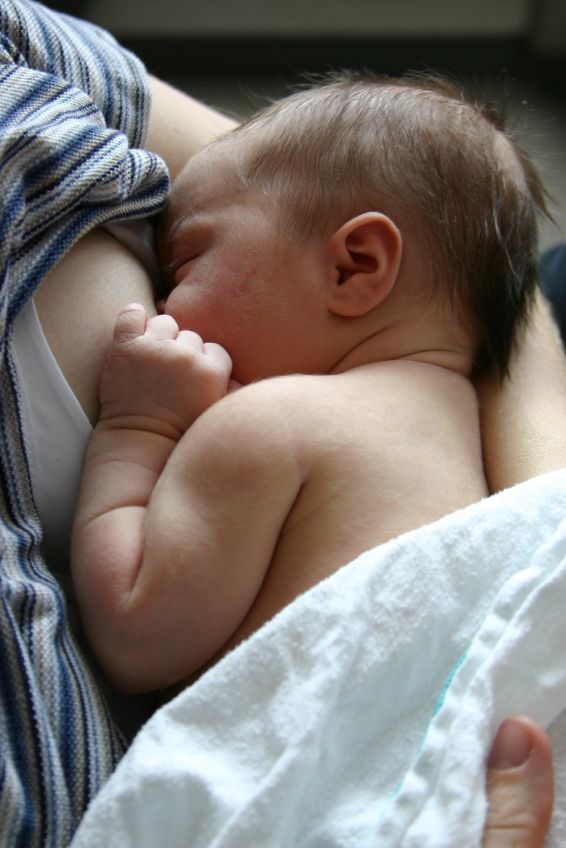 Then you can easily put the baby to bed by 19 o'clock.
Then you can easily put the baby to bed by 19 o'clock.
Transition to one nap
At the age of 15-18 months there is a transition to one nap. It can be long and take place in different ways.
For example:
In the morning, the baby falls asleep easily and sleeps up to 2 hours. But then it is difficult to put it in lunch. And by the evening without rest at lunchtime, he is already overworked and falls asleep with difficulty.
So if this is your case, you can pick up the baby after 60-75 minutes. At the same time, move the start of the second sleep 15 minutes later. But if the baby sleeps for 1 hour in the morning and then it’s already difficult to fall asleep a second time, start putting him down only at lunchtime.
One nap after 2 years
Between 2.5-5 years, naps may disappear. Here again, the story described above is often repeated. It seems that the child falls asleep perfectly during the day, sleeps for a long time, but in the evening, laying down is delayed until 10-11 pm. The problem is that getting up early in the morning to the garden usually does not allow you to sleep the necessary 10-11 hours per night. And again, you will have to gradually limit the duration of daytime rest. Wake your baby up after 60 minutes first, then skip the daytime so your baby sleeps better at night.
The problem is that getting up early in the morning to the garden usually does not allow you to sleep the necessary 10-11 hours per night. And again, you will have to gradually limit the duration of daytime rest. Wake your baby up after 60 minutes first, then skip the daytime so your baby sleeps better at night.
Keep an eye on your baby while doing this. If he is calm in the evening and falls asleep easily, and wakes up later than 6 o'clock in the morning in a good mood, then you are doing everything correctly.
If you notice excessive moodiness in the late afternoon or regular awakenings too early, then it is worth giving the baby more time to rest at lunchtime.
Like this article? Rate:
Votes: 91
Breastfeeding on demand
You can often hear from a nursing mother: "I feed on demand, my baby requires a breast every 3.5 hours." Or: “I have always fed on demand. In a year, we already had 1 feeding in the evening, and my child calmly refused to breastfeed.
Before talking about the demand of the child, it is necessary to find out what modern women mean when they say - "I breastfeed."
Modern mothers consider breastfeeding essential for feeding their baby. Just for feeding. Breast milk is food, the mother supplies the baby with the nutrients necessary for growth and development. When a baby suckles at the breast, he eats. Breastfeeding makes sense only as a process of supplying proteins, fats, carbohydrates, vitamins and microelements.
During suckling, the baby receives the nutrients it needs with mother's milk. This is the absolute truth. There is another unconditional truth, which is not given any importance in modern society, it is not taken into account and is not considered. Breastfeeding for a child is communication with the mother. We need to figure out how the child understands feeding on demand? Can he understand anything at all? Is there any difference for him how he is fed, for 15-20 minutes after 3. 5 hours or in some other way?
5 hours or in some other way?
What is on-demand feeding
On-demand feeding of a newborn baby means putting it on the breast for every squeak or search. Squeak and search movements in newborns, even as early as the second or third day of life, begin to appear much more often than after 3.5 or 2.5 hours. The need for attachments increases rapidly, and by the 10-12th day of life, the need to attach to a child may occur 15-16 or more times a day. Applications vary in duration. The baby can fall asleep and sleep while sucking for, for example, 1.5-2 hours. Can release the breast after 1-2 minutes. And then ask her again. Why does a child need such frequent contact with his mother's breast?
That's why. Being in the mother's belly, in a calm, familiar environment, listening to the noises of the mother's body, being in a warm, cramped, confined space, the baby sucked his fist, fingers, loops of the umbilical cord, swallowed amniotic fluid. Learned to suck and swallow. After birth, experiencing discomfort for any, the most insignificant reason, the baby tries to get rid of it. You can get rid of discomfort by getting into the usual conditions of a comfortable stay. The only place where the baby after birth can feel the sensations familiar to him is in the arms of the mother. The only familiar action is sucking. The only familiar taste and smell is the taste and smell of milk and lube in the areola. Milk and lubricant have an odor and taste similar to the taste and smell of amniotic fluid. Therefore, experiencing discomfort, the baby squeaks, or begins to look for an object to suck with his mouth. Ideally, it is immediately applied to the chest. The baby becomes warm, cramped, he hears the beating of his mother's heart, breathing, grumbling in the intestines, he sucks and feels the familiar taste and smell. If such an action happens constantly, the baby gains confidence, no matter what happens, he will solve all his problems with his mother. The place of comfort is now under the breast, and you can suck on the breast.
After birth, experiencing discomfort for any, the most insignificant reason, the baby tries to get rid of it. You can get rid of discomfort by getting into the usual conditions of a comfortable stay. The only place where the baby after birth can feel the sensations familiar to him is in the arms of the mother. The only familiar action is sucking. The only familiar taste and smell is the taste and smell of milk and lube in the areola. Milk and lubricant have an odor and taste similar to the taste and smell of amniotic fluid. Therefore, experiencing discomfort, the baby squeaks, or begins to look for an object to suck with his mouth. Ideally, it is immediately applied to the chest. The baby becomes warm, cramped, he hears the beating of his mother's heart, breathing, grumbling in the intestines, he sucks and feels the familiar taste and smell. If such an action happens constantly, the baby gains confidence, no matter what happens, he will solve all his problems with his mother. The place of comfort is now under the breast, and you can suck on the breast.
This whole process is justified from a biological point of view. A newborn child does not feel the feeling of hunger, this feeling is not formed in him. It will begin to form at about two months of age. How to feed a creature that does not experience hunger ?! How to encourage him to take some action to get food? This can be done only at the expense of some other incentives. This stimulus for the newborn is constant bodily discomfort, thanks to which he wants to suckle all the time! The most intense, frequent and prolonged sucking in infants is observed in the first two or three months of life. It is in these first months that the main weight gain of the baby occurs.
Feeding in the first month
Baby falls asleep with the breast in his mouth, sleeps sucking for a while. Falling asleep deeply, lets go of the chest. After sleeping for a while, he wakes up, and is applied on waking. After sleep, he can stay awake for some time, for example, an hour and a half. During wakefulness, he may feel discomfort 2-3 times, for example, from a completely natural desire to pee, and having called his mother for help, having kissed for a couple of minutes, he will do his deeds. Then he will want to sleep, feel discomfort and, kissing his chest, will again fall asleep sucking. After some time, he will wake up and attach again. Then again a little "walk". And after some time, he will fall asleep at the chest again.
Then he will want to sleep, feel discomfort and, kissing his chest, will again fall asleep sucking. After some time, he will wake up and attach again. Then again a little "walk". And after some time, he will fall asleep at the chest again.
The daytime naps of a one-month-old baby feeding on demand vary in duration and number. There can be 4-6 dreams during the day, and they can last from 5-15 minutes to 2-2.5 sometimes 3 hours. "Around" each dream, the baby is applied to the chest, and applied between dreams several times. At night, the child falls asleep at the breast. Usually in the early morning hours, he begins to fuss and apply. In the morning, he almost never fully wakes up. The baby sleeps, from time to time, sucking on his mother's breast. Waking up in the morning, the baby is again applied to the chest. If you count all the attachments that have happened in a baby of one month of age, then approximately 16-20 attachments are obtained. This is how a newborn human cub behaves if it is given the opportunity to behave in accordance with physiological and psychological needs, which, by the way, are genetically determined. The child of the first months of life does not separate his personality from the personality of the mother and from her breast. Mom and her breasts, and everything connected with them, are the universe of the baby and himself.
The child of the first months of life does not separate his personality from the personality of the mother and from her breast. Mom and her breasts, and everything connected with them, are the universe of the baby and himself.
In most cases, a modern woman, being afraid to “accustom a child to hands”, strives to limit his requests for suckling. A pacifier and a bottle of tea or water come to her aid in this matter. They, too, can be sucked ... The need for sucking seems to be satisfied. But only the need for communication with the mother during suckling is not satisfied, the peculiar chain of mutual assistance and cooperation between mother and baby is destroyed, the formation of maternal affection and concentration is disrupted. Is the difference in the two actions noticeable to the reader: the baby cried, the mother took him, put him to her chest and started rocking him, or gave him a pacifier and started rocking the stroller, even with the words “Why are you crying, my sun?”
The modern woman who gives a pacifier and pumps a stroller is not a bad person who deliberately harms an infant. She is simply in captivity of prejudices regarding the relationship between mother and baby. She does not know how to behave correctly, does not know what to do in accordance with the natural needs of the child. If you tell her what the child really needs, she will exclaim in horror: “What is it, don’t let him get away with?!” Indeed, the child of the first months of life must not be let off the hook. For a woman who does not know how to comfortably carry a baby, and who does not know how to feed him in various positions (sitting, lying, standing and even moving), this can be very difficult. Especially if she is not sure of the correctness of her actions.
She is simply in captivity of prejudices regarding the relationship between mother and baby. She does not know how to behave correctly, does not know what to do in accordance with the natural needs of the child. If you tell her what the child really needs, she will exclaim in horror: “What is it, don’t let him get away with?!” Indeed, the child of the first months of life must not be let off the hook. For a woman who does not know how to comfortably carry a baby, and who does not know how to feed him in various positions (sitting, lying, standing and even moving), this can be very difficult. Especially if she is not sure of the correctness of her actions.
An action that should become automatic for the mother of a newborn: when the baby cries or shows other signs of anxiety, put the baby to the breast.
What's next?
The baby is growing. A fairly stable rhythm of daytime sleep begins to form in him, and a 3-4-month-old baby behaves quite differently from a newborn. Feeding on demand at this age looks something like this...
Feeding on demand at this age looks something like this...
- At three months, the baby has 10-12 feeds during the day and 2-4 at night. There are frequent applications for a short time, but their number is reduced. There may be a long night break in feedings, about 5 hours, but this is very rare. Much more often the night break is 2.5-3.5 hours. By this age, the baby's body is noticeably rounded.
- At four months, the baby begins to breastfeed noticeably less frequently. The main feedings are associated with sleep: the baby suckles before bedtime, during awakening and during sleep, both daytime and nighttime. In this regard, he has a fairly accurate feeding regimen. And many babies stop breastfeeding when they wake up after daytime sleep, sometimes as early as 2.5-3 months.
- At five months, the baby has 8-10 daytime feedings and 2-3 nighttime feedings, as well as in the fourth month of life, they are organized around dreams - the baby eats when he goes to bed and some babies suckle when they wake up.

- Feeding regimen changes at six months. The most active sucking shifts to the last 2-3 hours before waking up from a night's sleep. The period of daytime wakefulness can be divided into two periods: in the morning, when the baby sucked during the night is rarely applied to the breast, and in the evening, when attachments become very frequent. In total, there can be 7-10 day applications and 3-4 night applications. At this age, the baby begins a period of acquaintance with new food - pedagogical complementary foods. Sometimes there are attachments associated with the introduction of complementary foods, the baby “washes down” samples of new food with mother's milk. But many children do not want to drink complementary foods. When complementary foods are introduced to an on-demand baby, it is never meant to replace feedings with complementary foods. This is practically impossible, because the main feedings of the baby are associated with sleep, and mother's breakfasts, lunches and dinners, during which the baby gets acquainted with new food, are located between the baby's dreams, during his wakefulness.

- At seven months, the frequency of applications is about the same.
- At eight months, the feeding regimen changes. Since the baby shows high motor activity and is very busy exploring the surrounding space, in the daytime he forgets to breastfeed. In this regard, the number of daily feedings can be reduced to 6-8 times. The baby compensates for the reduction in daytime feedings by increasing the frequency and duration of nighttime feedings up to 6 times.
- In the second half of the year, babies who stopped breastfeeding when waking up after daytime naps recall this habit again. The baby’s daytime sleep in the second half of life, as well as in the region of a year and older, looks something like this: the baby falls asleep sucking, sleeps quietly for a while, for example 1-1.5 hours, then starts tossing and turning, fiddling, worrying, at this moment the mother lies down next to , gives him a breast and the baby can fill up 10-15-30 minutes sucking. Mom may well use this time for her own rest - lie down, read, while the baby sleeps while sucking.
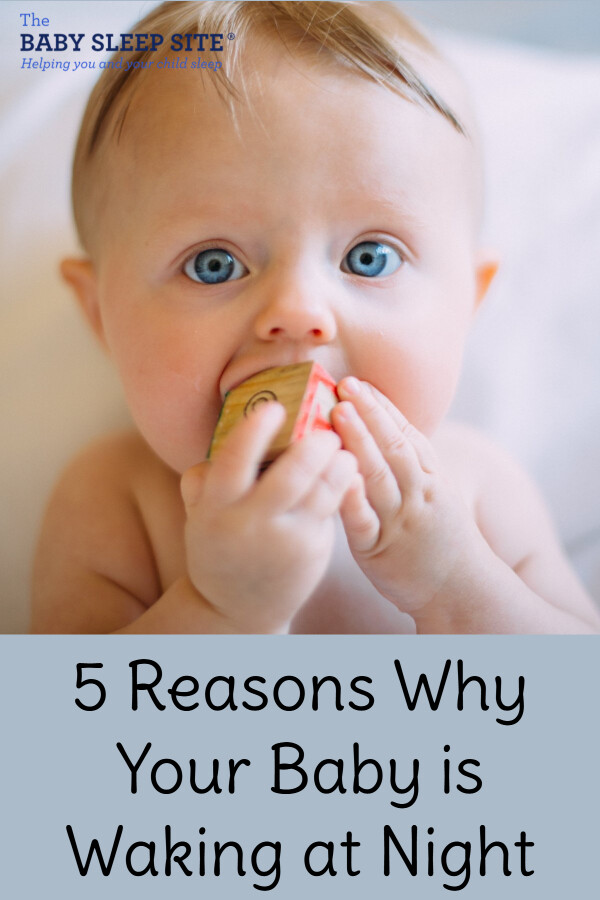 I know my mother, a lover of embroidery, who used this time specifically for embroidery ...
I know my mother, a lover of embroidery, who used this time specifically for embroidery ... - Breastfeeding becomes more frequent at nine to ten months. In the daytime, this is 4-6 full feedings and about the same number of attachments for various reasons. The baby has new reasons for attachment. If, during active actions to master the world, the baby fills a bump or gets scared, he calms down with his mother's breast. There may be situations when you can comfort the baby by sitting next to him and hugging him. At night, 4-6 feedings remain, the baby begins to suckle more actively in the morning between 3 and 8 hours.
- At eleven months, a baby can already have 2-3 complete complementary foods. Initiation to adult food in the mind of a child is not associated with breastfeeding: attachment to the mother's breast is something other than the desire to get enough of the product they like. As a rule, after the baby has eaten, he feels the need to attach himself to the breast.
 The number of daily feedings remains the same in the child, but the number of short-term attachments increases. There are active mid-morning feedings between 4 and 8 o'clock in the morning.
The number of daily feedings remains the same in the child, but the number of short-term attachments increases. There are active mid-morning feedings between 4 and 8 o'clock in the morning. - At ten or twelve months, the baby, if he is already walking, can sometimes breastfeed every time he comes to his mother, i.e. about every 15-30 minutes. Attachments around dreams and night sucking persist. Therefore, if a mother says that a child suckles once or twice a day, this means that there is no feeding at the request of the child. There are restrictions imposed by the mother, with which the baby has come to terms. He treats breast sucking like food, sucks on a pacifier or a finger to fall asleep or soothe, or falls asleep just like that, without calming down.
- At twelve months, the baby is applied in about the same way.
- At the age of one and a half years, there may already be one daytime nap, so there are fewer attachments associated with sleep. Preserved for morning sucking.
 The baby is very free with his mother's breasts. Sometimes it happens that he comes up to suck just for fun. For example, like this: he comes up, climbs on his knees, looks into his mother’s face, smiles, starts to swarm in his shirt, gets breasts, smiles at his breasts, sucks for 30 seconds and leaves.
The baby is very free with his mother's breasts. Sometimes it happens that he comes up to suck just for fun. For example, like this: he comes up, climbs on his knees, looks into his mother’s face, smiles, starts to swarm in his shirt, gets breasts, smiles at his breasts, sucks for 30 seconds and leaves.
As for the number of feedings per day when feeding a child on demand, their number is almost never less than 12. A newborn has 12 or more attachments, basically they are all associated with dreams. And a child, say 1.5-2 years old, can also have about 12 attachments, only 3-4 are associated with sleep, and the rest are short-term attachments for various reasons. I suggest to all mothers reading this text - do not count the application, do not notice their duration. Breastfeed your baby as often as he asks, when you feel the need to.
Mothers who do not think about breastfeeding without looking at the clock may get the impression that when feeding on demand, the mother can do nothing but feed the baby. This is not true. After the birth of a baby, a mother begins another life, she is called life with a baby. That's all. The child is with the mother, not the mother with the child! Feel the difference! You need to be able to organize your life in a different way, in the first months, of course, the help of loved ones is very necessary. In the tradition of many peoples, it was customary for the first 40 days after childbirth to remove a woman from any housework and household chores, she was engaged only in a child. In some nations, objects that the mother of a newborn touched were considered “unclean”, therefore, they preferred to protect the mother from the rest of the household, allocating her a separate “corner” of the house, where no one bothered her and she did not interfere with anyone. Among the Slavs, such a restrictive custom was called a six-week. By 1.5-2 months, the rhythm of daytime dreams begins to form, and the baby has a kind of “regime”, the mother becomes more free.
This is not true. After the birth of a baby, a mother begins another life, she is called life with a baby. That's all. The child is with the mother, not the mother with the child! Feel the difference! You need to be able to organize your life in a different way, in the first months, of course, the help of loved ones is very necessary. In the tradition of many peoples, it was customary for the first 40 days after childbirth to remove a woman from any housework and household chores, she was engaged only in a child. In some nations, objects that the mother of a newborn touched were considered “unclean”, therefore, they preferred to protect the mother from the rest of the household, allocating her a separate “corner” of the house, where no one bothered her and she did not interfere with anyone. Among the Slavs, such a restrictive custom was called a six-week. By 1.5-2 months, the rhythm of daytime dreams begins to form, and the baby has a kind of “regime”, the mother becomes more free.
For a mother who can't imagine breastfeeding without looking at the clock, and who is sure that the “right” baby is the baby lying quietly in her crib all the time, feeding on demand will be a complete hassle. It will be much easier for such a mother if she stops looking at the clock and ties the baby to herself with a large scarf or uses a patchwork holder (sling). It will become easier for her if she stops running between the nursery and the kitchen, but takes the baby with her to the kitchen and carries him around the house with her, doing housework, in a box, a cradle, a special chair, if she tries not to put him off often, and pick up as soon as possible, postponing the baby only in case of emergency and not for long.
It will be much easier for such a mother if she stops looking at the clock and ties the baby to herself with a large scarf or uses a patchwork holder (sling). It will become easier for her if she stops running between the nursery and the kitchen, but takes the baby with her to the kitchen and carries him around the house with her, doing housework, in a box, a cradle, a special chair, if she tries not to put him off often, and pick up as soon as possible, postponing the baby only in case of emergency and not for long.
Breastfeeding is not the same as house arrest. In the conditions of modern society, it is possible to organize the exit of a nursing mother to work from about 6 months of age of the baby. If necessary, you can start working from the age of 4 months, but, of course, it is better not every day of the week and not full time. It is the responsibility of a breastfeeding consultant to help a mother organize her return to work.
Sometimes, when counseling mothers on breastfeeding, I suggest that they forget for a second that they are already living in the 21st century.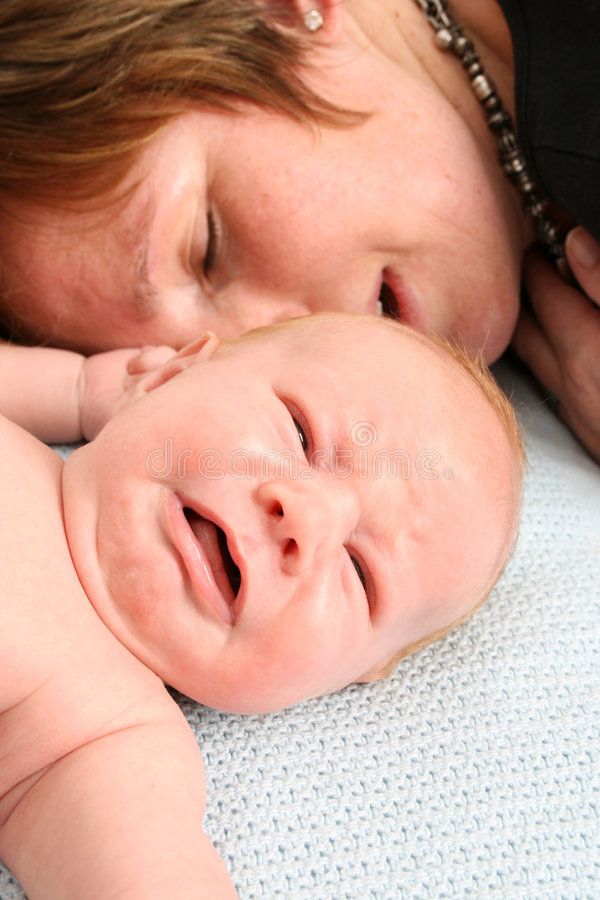 I propose to return, for example, to the cave and ask what they will do if the child woke up at night, how to calm him down? If you are walking through the forest and trying not to attract the attention of predators, how to make the baby silent? If the child is thirsty, what will you give him? What is the baby used to, for thousands of years of its existence? To the fact that he sleeps on his mother while she wanders through the forest with a digging stick in search of roots, and wakes up when mother stops. Since mom stopped, then there is time to wake up and suck. Therefore, even now the child sleeps well, tied to the mother with a patchwork holder, wakes up when the mother, having done a few household chores, sits in a chair to take care of the baby.
I propose to return, for example, to the cave and ask what they will do if the child woke up at night, how to calm him down? If you are walking through the forest and trying not to attract the attention of predators, how to make the baby silent? If the child is thirsty, what will you give him? What is the baby used to, for thousands of years of its existence? To the fact that he sleeps on his mother while she wanders through the forest with a digging stick in search of roots, and wakes up when mother stops. Since mom stopped, then there is time to wake up and suck. Therefore, even now the child sleeps well, tied to the mother with a patchwork holder, wakes up when the mother, having done a few household chores, sits in a chair to take care of the baby.
Some mother, reading about the cave, will be offended, saying that she is a civilized creature. But please think. Man, mother's breast and mother's milk have been created by evolution over millions of years. They are made for each other.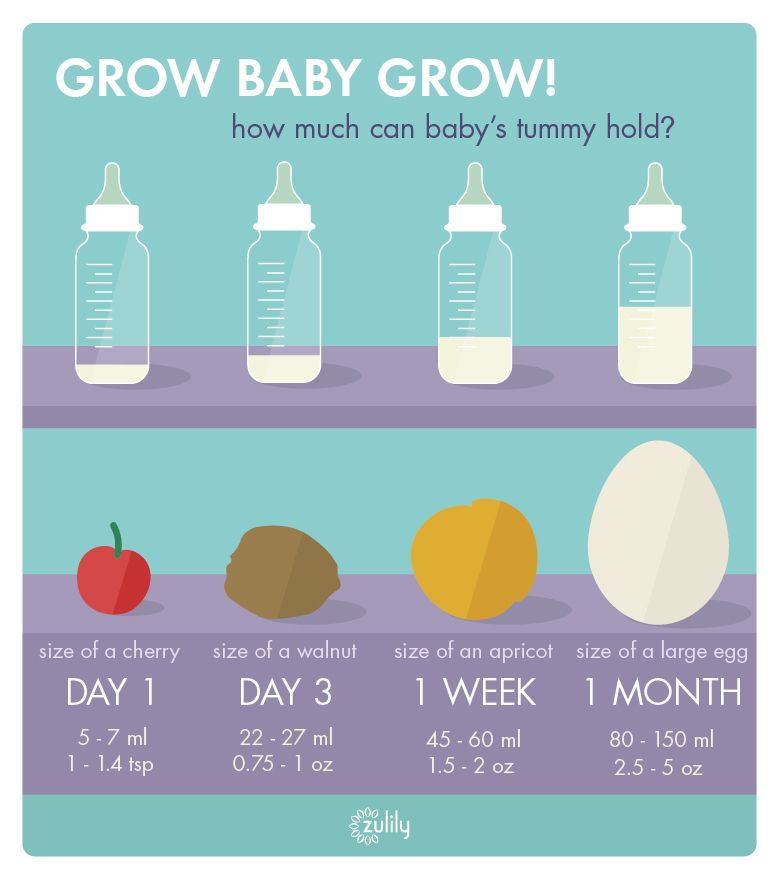 Baby food has created progress and more recently. The skills of motherhood and breastfeeding have also been lost by our society quite recently. A person is not physiologically adapted to artificial feeding and a pacifier. The mother's breast will not produce enough milk at 6-7 feedings per day. Nature did not know, when creating man as a mammal, that the time would come when the need for breastfeeding would be satisfied by some kind of pacifiers and nipples.
Baby food has created progress and more recently. The skills of motherhood and breastfeeding have also been lost by our society quite recently. A person is not physiologically adapted to artificial feeding and a pacifier. The mother's breast will not produce enough milk at 6-7 feedings per day. Nature did not know, when creating man as a mammal, that the time would come when the need for breastfeeding would be satisfied by some kind of pacifiers and nipples.
Changes that occur during the formation of the personality of a child who did not have full contact with the mother during prolonged breastfeeding are noted by modern research by psychologists and sociologists. These are changes with a minus sign. It would be better if they were not, these changes.
Breastfeeding is important not only for the baby, it is also important for the mother. During on-demand feeding, the woman's feelings change, a stronger attachment to the baby is formed, the woman becomes more sensitive to the needs of the baby.







